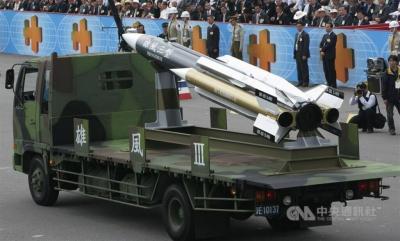With the mercury dropping over the Lunar New Year, hot springs are expected to be one of the biggest attractions during the holiday break. However, the Consumer Protection Commission (CPC) yesterday warned the public to check for safety and sanitation before taking the plunge.
"Only two of the 541 hot spring establishments around the country have passed the CPC's safety and sanitary regulation checks and obtained hot spring certifications," commission director-general and senior consumer ombudsman Wu Cheng-hsueh (吳政學) told a press conference.
NO HOT SPRING
One resort -- Langkei Motel (
The two certified hot springs are Tang-wei Hot Spring (
Although obtaining a hot spring certification is not mandated until July 2010, the number of hot springs that failed to meet regulations is alarming, consumer ombudsman Chang Mei-ying (張美英) said.
She said that "37.8 percent of the 74 hot springs investigated [excluding those in Taipei City] neglected to post safety precautions inside the facilities; 67.6 percent did not advise consumers of the high water temperature; and 86.5 percent did not post warning that the water isn't drinkable."
In terms of facility usage and safety, the hot springs were also below par, she said, with 66.2 percent failing at least one safety rule.
"In particular, 43.2 percent of the establishments used their facility space different from what was allowed by their business licenses," Chang said.
VIOLATION
"In fact, the violation percentage is 100 percent in Hsinchu and Kaohsiung counties," she said.
Of the 155 hot springs -- including those in Taipei City -- investigated for fire safety, 21.9 percent violated one or more regulations, Chang said
She added that 21.9 percent failed to meet one or more sanitation regulations, with about 10 percent of them exceeding permissible E. Coli levels.
Although the 81 hot springs in Taipei City were excluded from many of the commission's investigation because the city had already conducted partial checkups, the establishments in the nation's capital statistically fared much better than those in other parts of the country.
Commission statistics showed that 100 percent of hot springs in Taipei City adhered to fire safety regulations, and 97.5 percent passed sanitation regulations.

STATS: Taiwan’s average life expectancy of 80.77 years was lower than that of Japan, Singapore and South Korea, but higher than in China, Malaysia and Indonesia Taiwan’s average life expectancy last year increased to 80.77 years, but was still not back to its pre-COVID-19 pandemic peak of 81.32 years in 2020, the Ministry of the Interior said yesterday. The average life expectancy last year increased the 0.54 years from 2023, the ministry said in a statement. For men and women, the average life expectancy last year was 77.42 years and 84.30 years respectively, up 0.48 years and 0.56 years from the previous year. Taiwan’s average life expectancy peaked at 81.32 years in 2020, as the nation was relatively unaffected by the pandemic that year. The metric

Taiwan High Speed Rail Corp. (THSRC) plans to ease strained capacity during peak hours by introducing new fare rules restricting passengers traveling without reserved seats in 2026, company Chairman Shih Che (史哲) said Wednesday. THSRC needs to tackle its capacity issue because there have been several occasions where passengers holding tickets with reserved seats did not make it onto their train in stations packed with individuals traveling without a reserved seat, Shih told reporters in a joint interview in Taipei. Non-reserved seats allow travelers maximum flexibility, but it has led to issues relating to quality of service and safety concerns, especially during

A magnitude 5.1 earthquake struck Chiayi County at 4:37pm today, the Central Weather Administration (CWA) said. The hypocenter was 36.3km southeast of Chiayi County Hall at a depth of 10.4km, CWA data showed. There were no immediate reports of damage resulting from the quake. The intensity of the quake, which gauges the actual effect of a seismic event, measured 4 in Chiayi County, Tainan and Kaohsiung on Taiwan's seven-tier intensity scale, the data showed. The quake had an intensity of 3 in Chiayi City and Yunlin County, while it was measured as 2 in Pingtung, Taitung, Hualien, Changhua, Nantou and Penghu counties, the data

The Supreme Court today rejected an appeal filed by former Air Force officer Shih Chun-cheng (史濬程), convicted of Chinese Communist Party (CCP) espionage, finalizing his sentence at two years and two months for contravening the National Security Act (國家安全法). His other ruling, a ten-month sentence for an additional contravention, was meanwhile overturned and sent to the Taichung branch of the High Court for retrial, the Supreme Court said today. Prosecutors have been notified as Shih is considered a flight risk. Shih was recruited by Chinese Communist Party (CCP) intelligence officials after his retirement in 2008 and appointed as a supervisor